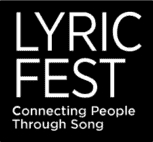Q: When you received the Marian Anderson Award, it is our understanding that it was presented by Miss Anderson herself. Describe how you felt at that moment.
A: Meeting the great Marian Anderson was a surreal experience. I felt as if I’d stepped inside the history books. I kept saying to myself, “Wow, I first learned of Marian Anderson when I was in the 4th grade during “Black History week” and here I was sitting in her home speaking with her and receiving the Marian Anderson Award. It was one of the greatest honors of my life. I treasure that memory.
Q: What was it like growing up in Washington, D.C.? What remnants of the turbulent 60s remained?
A: I enjoyed growing up in Washington, DC, our nation’s capitol. I remember at the time feeling privileged to be amidst so much majesty, with the White House and Capitol, the Smithsonian, the Washington Monument, and the Lincoln Memorial where Marian Anderson sang her historic concert and Dr. Martin Luther King gave his famous speeches.
We took lots of field trips with our school and the gravity of having access to so much history was received and grasped even then.
There was, of course, another reality “across the bridge” where we lived and there it was about survival moment to moment, but that experience role modeled to me how to survive and thrive under great adversity. It was gift, even though it didn’t feel like it at the time, for sure.
Q: In your career, specifically after Sept 11, your voice became a instrument of healing. How do you view yourself as an artist in today’s society and how would you describe your mission as an artist?
A: I view myself as an instrument that “hopefully” serves music. I want (as every artist does) to offer my best heartfelt performance wherever I am, as I believe that experience heals my own life.
Q: As a champion of new music, you have debuted many works throughout your career and have had parts written for you. Do you feel hopeful, as a vocal artist, about the direction that music composition is taking? Who are your favorite modern composers?
A: I’ve just had the wonderful experience of working with Douglas J. Cuomo on his new Opera “Doubt”, along with librettist John Patrick Shanley who wrote the play and directed the movie with Meryl Streep. It was an unforgettable experience for me, and an honour to have this material written specifically for my voice and to have the interaction with the composer on what would suit and allow the voice to be at its best. (That’s every singers dream. Who wouldn’t love to opportunity to sit with Mozart or Puccini? I’d like to have asked Puccini to write something with a mezzo-soprano as protagonist. :))
My very first Opera was a commission for the sesquicentennial of Oberlin College by Conrad Cummings called “Eros and Psyche” and when I completed my apprenticeship with Houston Grand Opera, Maestro Carlisle Floyd was composer in residence so I work-shopped a lot of his works.
I’ve had a lot of experience with modern composers in recent years. Both Robert Saari and Gene Scheer they have written selected songs for me that I simply adore. I have worked with with Richard Danielpour on Margaret Garner that we performed with Opera Company Philadelphia. And I will work later this season with Terrence Blanchard on his world premiere of “Champion.” He and I have performed together and spoken quite a bit about my character and what would allow us both, the character and me to be at our best. I’m looking forward to it.
But I guess if I had to name my favorite modern composer it would have to be the most recent as that’s the music that remains in my head at the moment, Douglas Cuomo.
Q: Did becoming a mother change how you view your career? The way you approach certain roles?
Motherhood has enriched my life tremendously and has given me a deeper appreciation for how I live my life and for life itself. Marilyn Horne told me not to miss that experience and I’m so grateful that I’ve been gifted with that privilege. It has given me something to really sing about.

